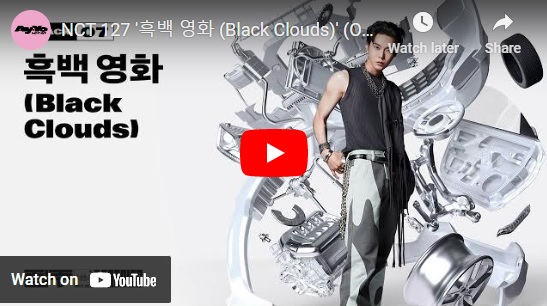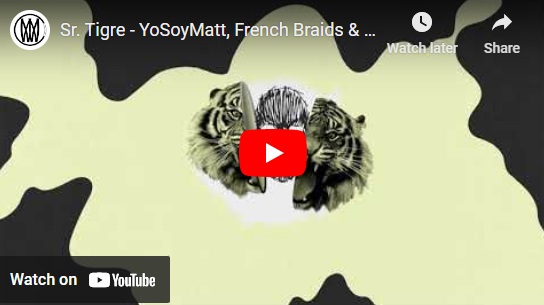He was born, raised, and remains based in Toronto, but Sean Fischer’s multi-hyphenate career as a songwriter, musician, composer, producer, and re-mixer is flourishing because of his global approach.
Via major success in such markets as Mexico and South Korea, Fischer’s music has accumulated more than 100 million streams. He co-wrote and arranged “Black Clouds,” a song on Korean pop group NCT 127’s Billboard world music charts-topping album 2 Baddies – one that sold more than 3.5 million copies. Elsewhere, the song “Sr. Tigre,” recorded as part of Fischer’s solo project, French Braids, went viral in Mexico, notching more than 20 million streams.
“I just follow where there are sparks. There have been a lot of those in the K-pop world, and I’ve been diving in there head-first,” says Fischer. “I’ve found that being there in person really helps bring success. I just got back from 10 days in the studio in Korea, being worked to the bone by SM Entertainment, the big label there. I’m always on the road.”
Aiding Fischer’s cause are his language skills (he’s fluent in English, French, and Spanish) and proficiency in a wide range of musical genres. “I may be up there as one of the most diverse producers in Canada,” he says. “I go from working on a Celine Dion ballad, to a Mexican tropical house re-mix, as French Braids. That diversity keeps me refreshed creatively.”
The Dion song referenced is the superstar’s new song “Waiting on You,“ featured in the movie (in which she also appears) Love Again, and that’s a career-boosting placement. “That song came out of a writing session with Liz Rodrigues six years ago,” he recalls. “For Celine, they took my demo and fully re-created it, with a 70-piece symphony orchestra. When I heard it, I literally dropped to the ground and started crying my eyes out. It was the most beautiful thing I’ve ever heard!”
Fischer has amassed impressive credits with other Canadian artists as well. He was a writer and producer on Jazz Cartier’s gold-selling “Tempted,” and other recent cuts include those by BANNERS, La Zarra, Banx & Ranx, Preston Pablo, and Dragonette, alongside international artists Fitz and the Tantrums, A Boogie wit da Hoodie, Tim Atlas, Now United, K-pop star Taeyeon, and Inna & Farina.
His unconventional career path included early jazz piano studies with the legendary Hilario Duran, and at Humber College; similar studies at McGill University, and in Havana, Cuba; and, back in his late teens, a stint in a rock band in Toronto.
“We signed to Sony, but after about a year I decided it was too much of a hustle,” he says. “After slogging it out in clubs for $75 a night, and fighting with my bandmates, I decided there had to be something else in store. I started doing internships for film composers, including The Hive studio. I basically forced them to let me pitch on projects for free, and I landed theme songs for HGTV and CTV News, for which I still get royalties 10 years later. That was the first stepping stone to my true producer career.”
Fischer balances two parallel creative identities, one as a songwriter, producer and re-mixer for hire, and the other as French Braids. In the former role, he has a publishing deal with Honua Music, while French Braids is signed to a joint record deal with Sadboy Records and Armada Music.
“It can be a headache with many overlapping deals,” he says. “My lawyers hate me, as I have to carve things in and out of contracts, but I do my best to keep the brands separate. French Braids is very pure electronic, dancefloor re-mix bangers. My Spotify for it has a cohesive sound of electronic, vibe-y re-mix stuff, with none of my pop cuts there.”
A collaboration with Mexican artist YoSoyMatt brought Fischer/French Braids stardom there. “During the pandemic I started reaching out to random producers on Instagram, offering to re-mix their stuff for free,” Fischer recalls. “I found YoSoyMatt, re-mixed his track ‘Sr. Tigre,’ and it went viral, with close to 15 million streams. That took me to Mexico, where we’ve played big festivals, and people recognise me on the street. Thanks to this Mexico magic, my own artist page has almost a million monthly listeners.”
Three tips for novice professional producer/songwriters
- “Think globally. I love Canada and SOCAN and all our beautiful systems, but at the end of the day, this is a tiny market on the world stage. It is so easy to set up a Zoom session in Australia or Korea. Open yourself up to markets that are way bigger than ours.”
- “Remember that a songwriting session is such a personal and social event. Be the kind of person a co-writer or artist would just like to have a beer with, or hang out with. Don’t make it all business, or people will be turned off so fast. I learned this from my publisher, who’s Norwegian, so every session we start off with coffee and a chat about life.”
- “This is easier said than done, but be really familiar with the song and the songwriting, the melody, the lyrics. If a producer can’t sit by a firepit and sing through the hit songs on guitar or just singing, then you are pretty limited as a producer. To me the best producers can in theory do it all themselves.”

